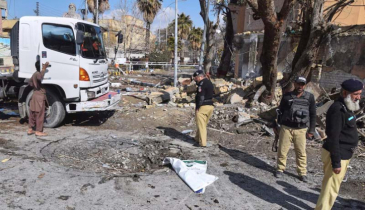Heatwaves drained $1.78b from Bangladesh economy in 2024

Bangladesh is paying a steep price for rising temperatures. A new World Bank report released in Dhaka on Monday estimates that heat stress cost the country between $1.33 billion and $1.78 billion in 2024 alone — the equivalent of roughly 0.3 to 0.4 percent of national GDP.
The study, titled “An Unsustainable Life: The Impact of Heat on Health and the Economy of Bangladesh”, paints a stark picture. 250 million workdays were lost last year as heat-related sickness kept workers off the job. When temperatures climb beyond 37°C, the decline in productivity among working-age people becomes even sharper, leaving sectors like agriculture, construction, and manufacturing especially vulnerable.
“Unprecedented warming has become a tangible drag on Bangladesh’s economy,” the report warned. It combined nearly five decades of climate data (1976–2023) with fresh surveys of more than 16,000 households in 2024 to measure how heat is reshaping daily life.
The findings are sobering. Since 1980, Bangladesh’s maximum temperature has risen by 1.1°C, while the “feels like” temperature — which reflects humidity and heat stress — has jumped by 4.5°C. The consequences extend far beyond sweaty discomfort: diarrhoea, chronic coughs, respiratory illnesses, and fatigue have all spiked, while mental health disorders such as anxiety and depression are also being linked to heatwaves.
Dhaka is bearing the brunt. The capital’s heat index has climbed at a rate 65 percent higher than the national average, making life especially punishing for its 20 million residents.
Globally, Bangladesh now ranks as the second-most exposed country to extreme heat, raising alarms over how much worse the situation could get in the coming decades. “Extreme heat is not just a seasonal inconvenience. Its impact is far-reaching. As we see in Bangladesh, the rising temperature is affecting our health and productivity, and the country’s prosperity,” said Jean Pesme, World Bank Division Director for Bangladesh and Bhutan.
Still, experts stress that the crisis is not insurmountable. Bangladesh has already built a reputation for climate resilience in flood management and disaster response. According to Pesme, if the country applies that same determination to heat adaptation — with coordinated action across urban planning, health, and labor sectors — it can mitigate the damage. He pointed to global examples like Singapore, which has introduced heat-sensitive building codes, cooling infrastructure, and targeted social protections.
The report urges Bangladesh to consider similar measures, from redesigning cities with more green space and ventilation corridors to strengthening healthcare systems and improving early warning networks for heatwaves. Without such action, the cost of lost lives, disrupted livelihoods, and weakened economic growth is expected to rise sharply in the years ahead.
.png)









